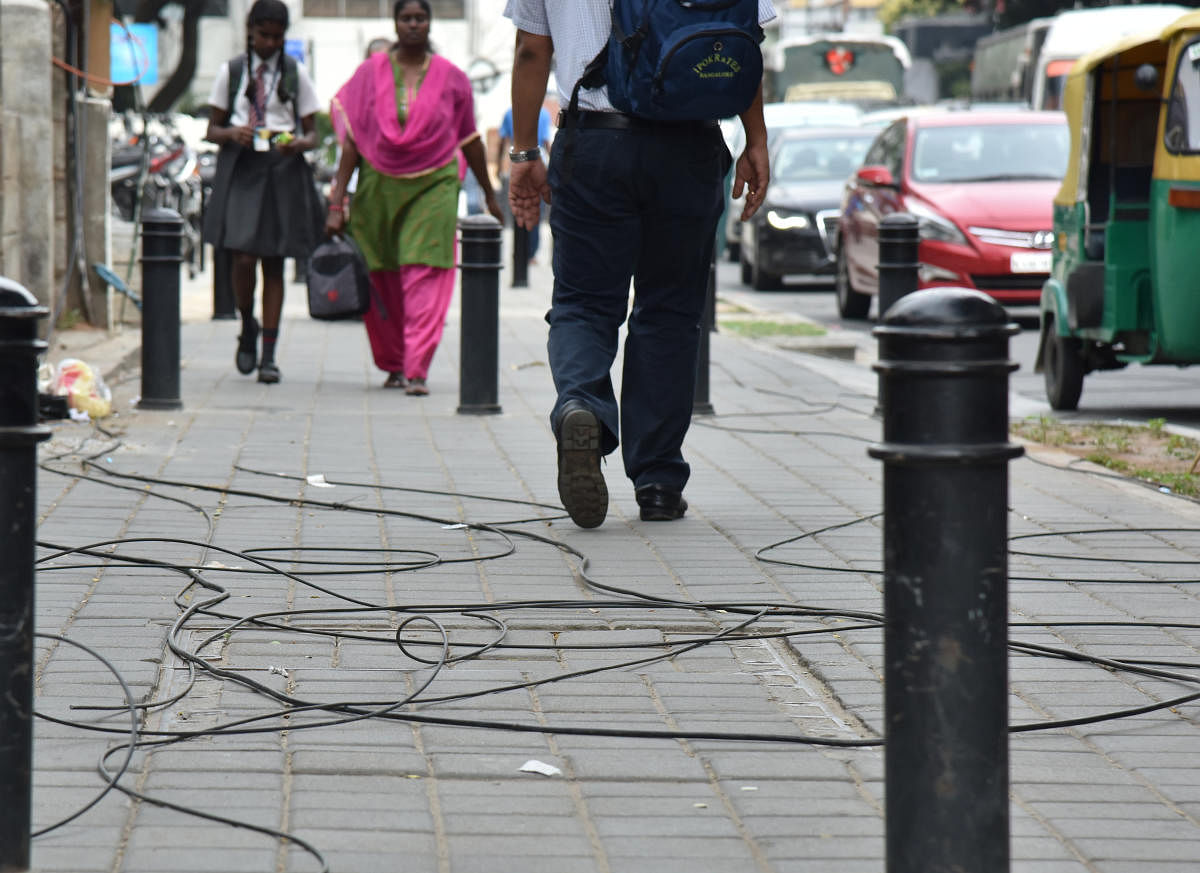
Road work in Bengaluru is a Sisyphean practice—but while the Greek king was doomed to roll his stone uphill forever, Bengalureans seem doomed to a perpetual cycle of digging and repaving. Whether it is the work by Bescom, BBMP, BWSSB or mobile service providers, residents across the city just do not seem to think the benefits of cable infrastructure outweigh the consequences of this hazardous process.
Sudarshan Shastry, a resident of Kapila Apartments in Owners Court Layout in Kasavanahalli, has witnessed the dangers of cable-laying in his own home. Just one day into laying 1,067 metres of a 11KV line using horizontal directional drilling (HDD), power was cut to one apartment for three days.
When Bescom finally located the damaged area and attempted to fix the issue, it delivered a surge to the powerless apartment. The surge blackened the apartment and scorched various appliances, forcing the family to vacate the apartment for a week, according to Shastry. The next day, the entire complex lost access to gas.
“Who is accountable for the plight of the resident?” asks Shastry. He explains that Bescom initially attributed the outage to a short circuit in the apartment. Only after the residents filed an FIR did Bescom agree to compensate those affected.
Pratiush Raj, president of his apartment community at Oceanus Vista, expresses similar frustration with the lack of accountability in the cable-laying process. “They say they will send but nobody comes. It’s so painful. We have approximately 250 apartments—and each apartment pays at least Rs 5,000 as property tax. But no work is happening for us,” says Raj, adding, “People need amenities, but not at the cost of these.”
In Whitefield, ward committee member Gautam Mishra has seen a similar tragedy play out on ECC Road for several years. According to Mishra, a leading telecom firm has conducted most of the recent digging while other providers have been digging periodically for repairs. Mishra views the current approach as unscientific and not sustainable.
Notes Mishra, “BBMP has an OFC cell that is a major revenue generator by doling out digging licenses to multiple operators without any planning, coordination and putting in some thought how to create one single duct for all to lay the cable once and for all. They need to come up with a standard mechanism to create this shared infrastructure for all telecom and cable operators.”
This work, he adds, should be outsourced once to a capable infrastructure company and an MOU needs to be signed with all licensed telecom operators. “No road digging permission should be given to individual operators,” Mishra points out.
For locals on the street, however, laying cables poses an even greater problem: it worsens an already jammed traffic flow. Puja Harati, 17, a student at PESIT University, usually commutes to school via bus or cab. In the evenings between 6 and 8 pm, jams add half an hour to her commute. “There are many constructions on this road, which is very narrow. If anywhere on the road there is a jam, it affects the whole road,” Harati says. Moreover, Harati expressed concerns about the polluting effects of road digging. “There is a lot of pollution on this road. It affects your skin and allergies because of the cement in all the construction areas,” Harati says.
However, for one resident of Kasavanahalli’s Confident Phoenix who already has cable access, the condition of nearby roads doesn’t impact her day-to-day routine. Rather, her biggest concern is still the difficulty of safely crossing the street with her two young children.